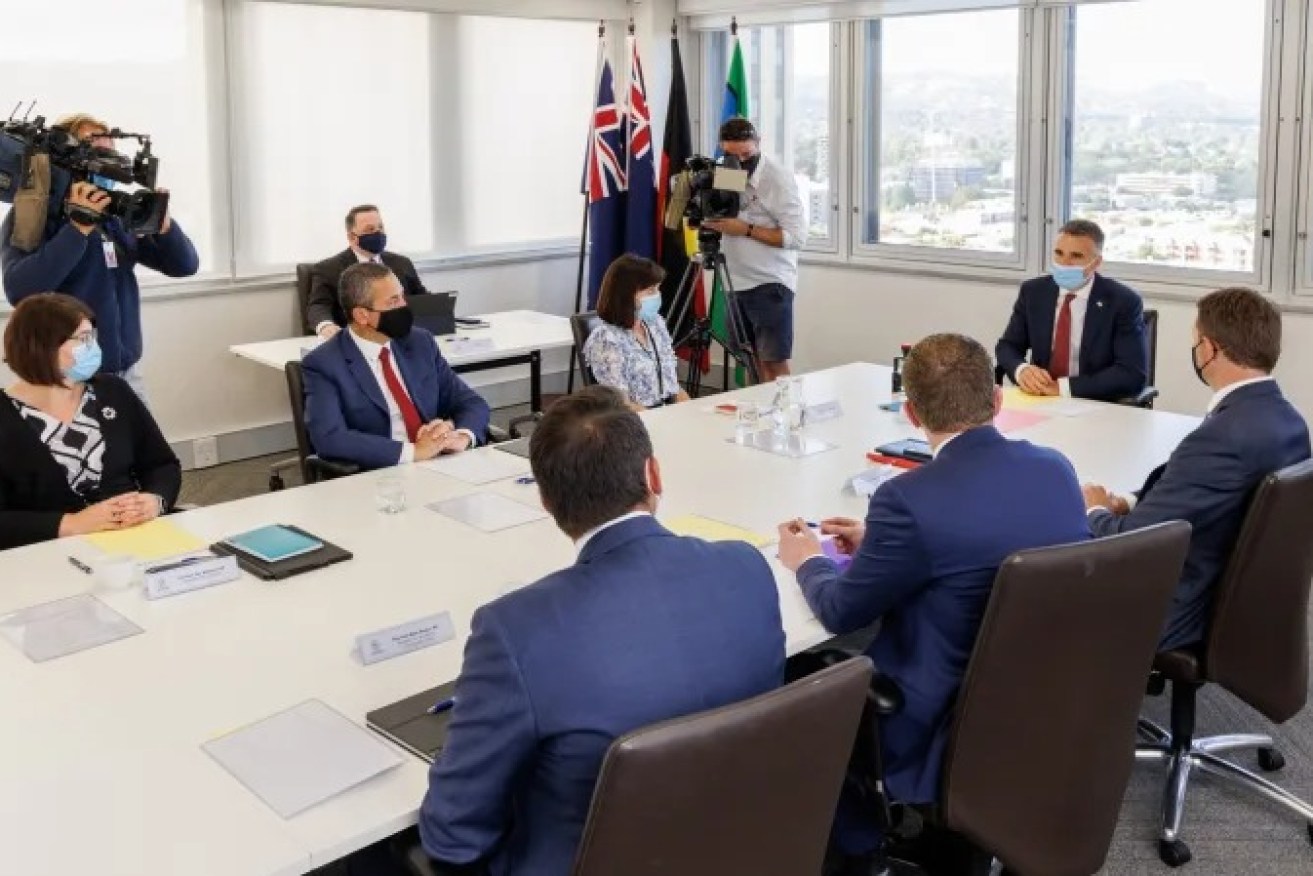Labor set to kill cabinet transparency push
The Malinauskas Government has indicated it will vote down “onerous” legislation requiring cabinet ministers to publicly disclose all meetings and events they attend concerning their portfolio.


Labor frontbenchers are being pushed to publish their monthly ministerial diaries. Photo: Tony Lewis/InDaily
The Upper House on Thursday night debated the Freedom of Information (Ministerial Diaries) Amendment Bill 2022 which would require frontbenchers to publish their diaries each month setting out “all meetings, events and functions attended by the Minister that relate to the Minister’s responsibilities”.
The diaries – revealing what organisations, businesses, lobby groups and peak bodies ministers are meeting – would be published on a website determined by the Attorney General. Currently, the information is only available via a Freedom of Information request.
Similar “proactive disclosure” measures already apply to ministers in Queensland, New South Wales and the ACT.
A push from Greens MLC Robert Simms’ to have the measures enshrined in South Australian legislation passed the Upper House last night with the support of the Liberal Opposition and the crossbench.
But the governing Labor Party opposed the Bill, ensuring the amendments will be killed off once they are brought before the Lower House later this year.
Simms said he was disappointed the government would not support a “very straightforward reform”.
“The Labor Government ministers over in the ACT, New South Wales and Queensland are all subject to this level of transparency and scrutiny, and I can’t really comprehend why Labor ministers here in South Australia would not want to subject themselves to the same level of scrutiny,” he told parliament.
“I hope that the government will reconsider their position in the [Lower House].”
Attorney General Kyam Maher, speaking on behalf of the government, cited privacy concerns and an “onerous” provision to publish the diaries within seven days of the end of the month.
“The requirement in the Bill for ministerial diaries to be published within seven days, I’m informed, would make the South Australian disclosure requirements by far the most onerous in the nation,” he told parliament.
“The publication of diary extracts elsewhere in Australia, I’m informed, has raised concerns about privacy where meeting attendees may not give consent about them being published in the register.
“Ministers often meet with various members of the public, some of whom would understandably be reticent about their names being published for all to see.”
Simms rejected Maher’s privacy concerns, arguing the legislation “makes it very clear that personal meetings are not to be disclosed [and] confidential information is not to be disclosed”.
“It also gives the minister the power to appeal to the tribunal to request that information not be disclosed if they consider that it’s going to compromise private information of an individual,” he told parliament.
“So the claims that have been made are not accurate.”
Under Simms’ Bill, a minister could elect not to publish a meeting if they believe it would be “contrary to the public interest” but would have to make a statement outlining why the information was withheld.
A minister’s decision to redact information could also be subjected to scrutiny from the Ombudsman or the Civil and Administrative Tribunal if a member of the public applies for a review.
Maher said other government reforms, such as the banning of political donations, would have “a far more tangible reflection on transparency and trust in politics” than the Greens Bill.
Liberal MLC and former minister Michelle Lensink spoke in support of the legislation on behalf of the Opposition, arguing it could help the parliament “more easily identif[y] any conflicts of interest”.
“The proposal enhances transparency including potentially providing clearer overview to the parliament of policy and funding decisions of ministers derived from meetings with stakeholders,” she told parliament.
“Considerations should also be given to the additional administrative responsibilities and resourcing required to support the proactive disclosure of ministerial diaries, including that of the Ombudsman and SACAT (South Australia Civil and Administrative Tribunal).”
SA-Best MLC Frank Pangallo said his party would also support the motion because “we believe transparency, particularly amongst ministers, is paramount”.
Parliament is not due to sit again until September 6.




